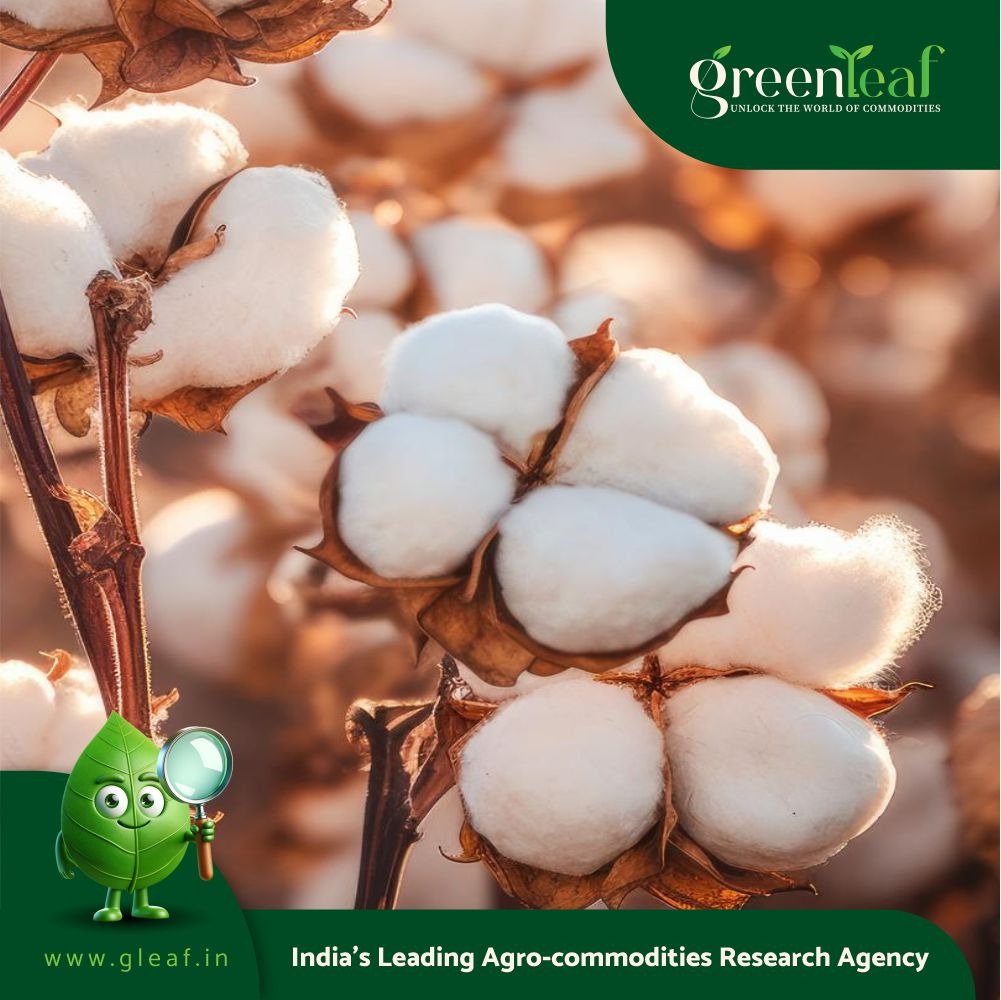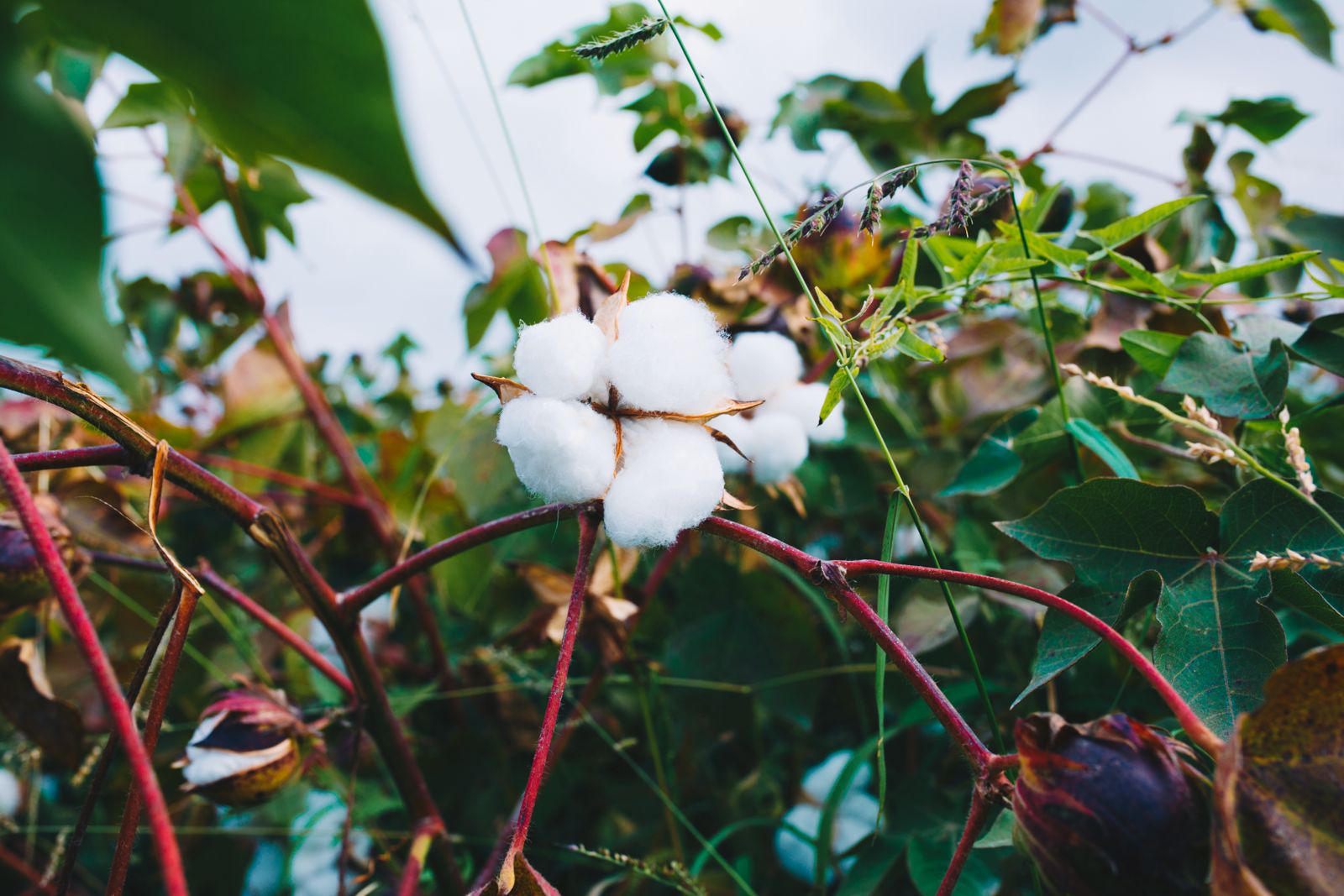KARACHI: The New York cotton market showed mixed trends, while local cotton prices remained stable. However, trading activities were limited. The Commerce Minister hinted at a possible sales tax exemption on local cotton and proposed including it in the new cotton policy.
Meanwhile, Pakistan’s textile industry is rapidly declining, as expressed by Kamran Arshad, Chairman of All Pakistan Textile Mills Association (APTMA). Similarly, Ehsanul Haq warned that the cotton industry could face the worst economic crisis in history.
In Faisalabad, representatives from All Pakistan Textile Mills Association (APTMA), Pakistan Cotton Ginner’s Association (PCGA), All Pakistan Textile Processing Mills Association (APTPMA) / Council of Power Looms Associations/ PYMA held a joint press conference regarding EFS (Export Facilitation Scheme) and highlighted related concerns.
Ehsanul Haq, Chairman of the Cotton Ginners Association, stated that incorrect data from Federal Committee on Agriculture (FCA) and National Accounts Committee (NAC) has caused difficulties for stakeholders in cultivation, imports, and price determination, negatively impacting their strategic decision-making.
During the past week, the local cotton market saw stable prices, but trading remained limited. Cotton deals were finalized at prices ranging from 16,700 to 17,500 rupees, depending on quality and condition. The stock of cotton with ginners is gradually decreasing. Advance deals for the new crop of 2025 - 2026 (Phutti and cotton) are taking place.
In Sindh, Phutti was traded at 8,300 to 8,500 rupees per 40 kg, while cotton deals were made at 16,000 to 17,500 rupees per maund. It is said that by the third week of May, two or three ginning factories in Punjab are expected to partially start operations using Phutti from Sindh.
In lower Sindh and several cotton-growing areas of Punjab, Phutti production is underway, and partial picking has also begun.
The Federal Committee on Agriculture has set a production target of 10.18 million bales of cotton for the upcoming 2025-26 season. APTMA, PCGA, and FPCCI have repeatedly appealed to the government regarding the continuation of the Export Facilitation Scheme (EFS) and are persistently urging for its approval, but no decision has been made so far.
Some circles remain hopeful that a solution will be proposed in the budget. Nevertheless, textile industries and PCGA cotton ginners continue to submit requests concerning EFS. FPCCI and various organizations have held meetings and press conferences, emphasizing the need for a level playing field by restoring the EFS facility, but no positive steps have been taken thus far. On the contrary, the Textile Value Added Association is demanding the continuation of EFS.
A delegation comprising PCGA Chairman Dr. Jesumal Lemani, former Chairman Suhail Mahmood Haral, and APTMA Chairman Kamran Arshad met with Prime Minister Shehbaz Sharif, who assured them that the sales tax on local cotton and other taxes on by-products would be abolished in the budget. However, there is no confirmation yet on whether a final decision will be made in this regard.
Meanwhile, the Pakistan Business Forum has demanded the removal of GST in the budget.
Pakistan’s textile industry is rapidly declining as the government has failed to address a critical flaw in the Export Facilitation Scheme for over 10 months. According to a press release by APTMA, the result is a severely flawed tax system that has rendered the local industry uncompetitive, destroyed domestic supply chains, and handed over Pakistan’s textile value chain to foreign suppliers.
Kamran Arshad, Chairman of the All Pakistan Textile Mills Association (APTMA), stated that the government must immediately remove yarn and fabric from the EFS import scheme. This is the only way to prevent the collapse of Pakistan’s textile industry.
In the provinces of Sindh and Punjab, the price of cotton per maund ranges between Rs16,000 and Rs 17,500, depending on quality and condition. Advance deals for the new crop have been settled at Rs 17,300 to Rs 17,500 per maund.
The Spot Rate Committee of the Karachi Cotton Association has maintained the spot rate stable at Rs 16,700 per maund.
Naseem Usman, Chairman of the Karachi Cotton Brokers Forum, said that international cotton prices remained stable. The price of New York cotton futures is currently trading between 66.00 and 70.00 American cents.
According to the USDA’s weekly export and sales report, sales for the 2024-25 season reached 141,400 bales. Vietnam remained the top buyer, purchasing 61,800 bales, while Turkey ranked second with 19,400 bales. Pakistan secured the third position by buying 18,700 bales.
For the 2025-26 season, sales were 7,400 bales, with Honduras leading at 5,500 bales, followed by Vietnam in second place with 1,900 bales.
Meanwhile, Federal Commerce Minister Jam Muhammad Kamal has informed the National Assembly that the government is developing a new textile policy, which is likely to include a proposal to exempt domestically produced cotton from the existing 11% sales tax.
The minister also addressed the 30% retaliatory tariff imposed by the United States on Pakistan, which is currently suspended for 90 days. Exporters generally view this tariff as a challenge, though some believe it could also present an opportunity for Pakistani products in the U.S. market due to higher tariffs imposed on competing countries.
To address these challenges, the Prime Minister has formed a steering committee and a working group tasked with conducting a detailed analysis of the U.S. retaliatory tariffs and formulating a policy response. The Commerce Ministry is collaborating with various ministries, departments, exporters, and relevant stakeholders to develop a strategy for effective engagement with US authorities.
In the fiscal year 2023-24, Pakistan’s exports to the United States amounted to $5.3 billion, while imports were $2.2 billion, resulting in a trade surplus of $3.1 billion, according to the Business Club.
In the current fiscal year (until March 2025), Pakistan exported $4.4 billion worth of goods to the U.S. and imported $1.9 billion, maintaining a trade surplus of $2.5 billion.
Pakistan’s major exports to the U.S. include garments, medical equipment, and PET bottle-grade products, while key imports from the U.S. consist of cotton, iron and steel scrap, computers, petroleum products, soybeans, and almonds.
Additionally, concerns have been raised that despite the start of the new cotton ginning season in the second week of May—a first in the country’s history—the tax-free import of raw cotton and cotton yarn from abroad may push the entire cotton industry, including ginning, into the worst economic crisis in Pakistan’s history. As a result, during the 2025-26 cotton season, the ginning and textile industry may operate at less than 50% of its full production capacity. This could force Pakistan to once again import billions of dollars’ worth of cotton, along with billions in edible oil.
Ehsan ul Haq, Chairman of the Cotton Ginners Forum, said that three ginning factories have become operational in Khanewal and Burewala in Punjab, while reports suggest one or two factories in Tando Adam, Sindh, will start operations by May 25. He stated that initial deals for new cotton are being settled between Rs. 17,000 to Rs. 17,500 per maund, while new phutti (seed cotton) is being traded at Rs. 8,300 to Rs. 8,500 per 40 kg.
He further revealed that the federal government has allowed the import of cottonseed after nearly 50 years. However, reports indicate that some high-ranking government officials and private seed companies had previously imported cottonseed from China, Australia, the U.S., and Brazil for trial cultivation in various parts of Pakistan. These efforts failed largely due to environmental pollution caused by the lack of enforcement of crop zoning laws, which prevented the cotton crop from thriving.
Haq emphasized that the current issue in Pakistan is not cotton production but its consumption. Despite the second-lowest cotton crop in history—only 5.5 million bales in the 2024-25 season—around 200,000 to 250,000 bales of unsold cotton remain in ginning factories. Additionally, cotton ginners have yet to receive hundreds of millions of rupees from textile mills for cotton sold on deferred payments.
He also warned that cotton cultivation in some areas of Punjab, Sindh, and Balochistan is at risk due to canal water shortages and sudden temperature spikes, which may cause the crop to wither soon after sprouting.
Furthermore, if the federal government does not abolish or domestically implement the Export Facilitation Scheme (EFS) in the upcoming budget, the country’s cotton industry could face its worst economic crisis, leading to significant foreign exchange expenditures on imports of cotton, cotton yarn, grey cloth, and edible oil.
The cotton sector is also troubled by the “laughable” production figures released by the National Accounts Committee (NAC) for the past two years. This concern stems from previous miscalculations by the Federal Committee on Agriculture (FCA) regarding cotton cultivation and targets over the past decade.
For the 2023-24 cotton season, the Pakistan Cotton Ginners Association (PCGA) reported total national production at 8.4 million bales, while the NAC projected an “inflated figure” of 10.22 million bales. This discrepancy continues for the 2024-25 season, with PCGA reporting 5.5 million bales and NAC claiming 7.08 million bales.
Ehsan ul Haq, Chairman of the Cotton Ginners Forum, emphasized that the incorrect statistics from the FCA and NAC create significant difficulties for stakeholders in formulating their strategies for cultivation, imports, and pricing. “Inaccurate data could lead to a decline in cotton-based exports due to insufficient imports of raw cotton,” he warned.
He stressed the importance of government institutions consistently releasing accurate cultivation and production statistics in their annual planning to help stakeholders avoid such complications.
Meanwhile, both the Aptma and the PCGA have written to Prime Minister Shehbaz Sharif and launched an advertising campaign. Their message is clear: if the Export Facilitation Scheme is not abolished or its domestic application is not implemented, and if the 18 percent sales tax on cotton seed, cotton seed oil, and oil cake (khal banola) is not removed, the cotton ginning and textile sectors will find it nearly impossible to remain operational.
Approximately 800 ginning factories and over 120 textile mills have already ceased operations due to this scheme.
















